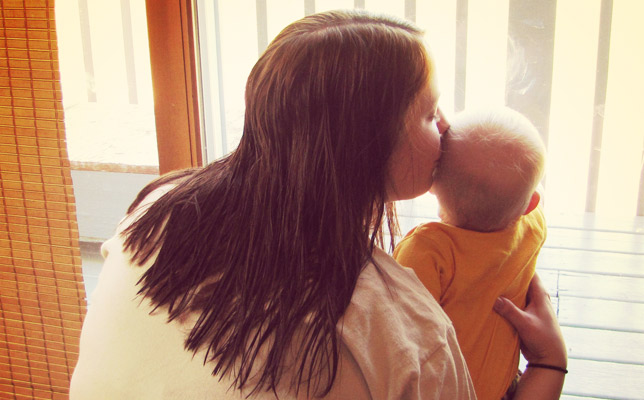This guest post is by Paige Knipfer, an adoptive mother.
Adopting a baby can be overwhelming. It’s hard to predict what will happen as you go your journey or where you’ll end up.
When my husband and I first began our journey, I couldn’t believe how little people knew about adoption and how willing they were to share their horror stories with me.
One of the things I learned is that you need to understand where people are coming from.
Most of them are just curious so you can’t take their comments personally and let yourself get frustrated. Instead, you have to educate them one person at a time.
Here are 10 things that people didn’t tell me about adopting a baby that may be helpful to you.
1. Not all adoption agencies are equal.
Once you’ve chosen to go down the path of private domestic, find one that’s a good fit for you–that suits your needs and personality.
Ask questions (lots of questions!) like how many families do they match in a year, how many failed matches do they have, and what is their policy if a birthmother changes her mind.
2. Budgeting your money as you go through the process is hard.
It’s hard to predict how much your placement will cost you. That’s because the expenses are broken down into different parts.
If possible, try and budget a larger total than anticipated for those unexpected items that come up. Also, compare the costs online with other agencies that offer similar services.
3. Your house doesn’t need to be spotless for your home study.
Before your social worker visits your home, you’ll feel the need to be a clean freak. But don’t stress yourself out.
She is just looking to make sure that your house is safe and has enough space for a child. And you don’t need to own a home to adopt.
4. Your family may react differently to your adoption than you expected.
Adopting a baby is a life-changing event. It’s hard not to get excited about it or to start preparing for your child’s arrival.
But your family may not share your enthusiasm and that can be hurtful. Again, don’t stress out. Explaining how adoption works may help them become more comfortable with your situation, especially over time.
5. You will encounter a general lack of knowledge about open adoption everywhere you go.
Try not to get frustrated or discouraged when you run into people who don’t understand the process or why you’re maintaining a relationship with your child’s birthparents.
Use these incidents as opportunities to educate them. The more people who do this, the fewer misconceptions and mysteries there will be about adopting a baby.
6. Decide how much openness you want to have with the birthparents before the placement.
What level of contact are you comfortable with your child’s birthmother or parents? Don’t promise a relationship that you can’t follow through with.
Keep in mind that it will take time to adjust to your new arrangement, particularly in the initial stages of the process.
7. The birthmother relationship may be rougher for you than expected.
As a new adoptive parent, you will deal with many complicated and unexpected emotions of joy and pain, particularly in regards to your child’s birthmother.
Don’t be afraid to lean on your family or friends or to seek professional counseling if you feel you need it. Adopting a baby comes with its own set of challenges that may require more specialsed assistance.
8. Getting your baby’s documents can be challenging.
Depending on the situation and the state you adopt from, how you obtain your baby’s key documents may vary dramatically. You may need to get the birth certificate after your court hearing through the court house. or sometimes you can obtain it at the hospital.
Ask your agency or attorney to assist you with this. Also, try to find someone who can help you understand how the adoption tax credit works. We used Turbo tax and it worked well.
9. Your adoption courses won’t answer all of your questions.
When you take your required classes for the home study, the main focus will be on adoptive parenting. To round out your knowledge, try to take additional classes on basic parenting.
The adoption-focused groups and classes are great, but they shouldn’t be your sole focus. General parenting classes can give you more insights into what to expect after you bring your baby home.
10. Bringing your baby home isn’t the end of your journey.
Your adoption education never ends. Just because you’ve completed the required training for your home study doesn’t mean you should stop reading, researching and networking.
It’s nice to have a group to lean on as you’re going through the open adoption process. But they’re also helpful when your child gets older and starts asking questions about his adoption.
Paige Knipfer is a trainer for a financial institution, an adoptive mom, wife, mentor to a high school student, volunteer, and avid traveler (Semester at Sea alumni). She loves to share her adoption experiences and assist anyone interested in learning more about the process @PaigeKnipfer.
Do you have a story about adopting a baby? Email us or Share it with our community.
Help us remove the stigma surrounding open adoption. Like us on Facebook.

